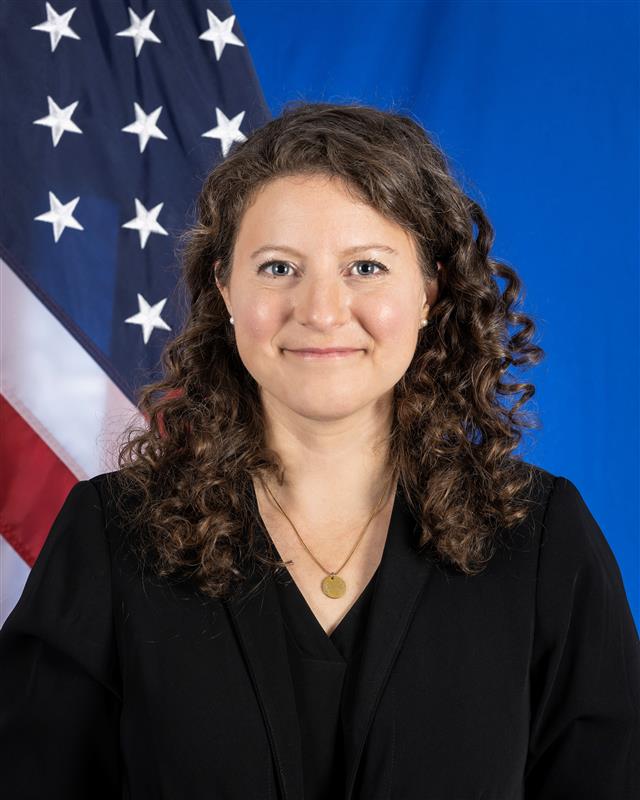
Caroline D’Angelo
Acting Chief Sustainability Officer, State Department
Caroline D’Angelo is proud of a new partnership with NASA to use the agency’s satellites and modeling capability to develop air quality forecasts for embassies and consulates overseas.
Air pollution is a huge health concern for diplomats and one of the top non-communicable killers that gets worse with warmer temperatures, desertification and other climate impacts ⏤ but yet reliable data is not available in many cities around the world.
There are U.S.-made, ground-based monitors at nearly 80 of the State Department’s locations worldwide to provide reliable, real-time and open data to help people protect their health.
D’Angelo is proud of recruiting academic scientists for 1-year fellowships to develop an energy and greenhouse gas emissions reporting methodology. This methodology will be shared with global department partners. She also applauds her team for leading the creation of an offsite “diplomatic solar farm” that offers cheaper and cleaner power to multiple embassies in Washington, D.C.
“Caroline D’Angelo has inspired the State Department to lead by example on climate and the environment, through embassy Green Teams, clean energy programs, and strategic partnerships with foreign and local governments to build a more sustainable, equitable and healthy future for our nation and the global communities where we work,” said Brett Pomainville, acting director of the Office of Management Strategy and Solutions for the State Department.
Why Watch
D’Angelo and her team are heavily focused on data. They are completing the State Department’s first global greenhouse gas inventory, enabling the establishment of ambitious emission reduction targets. They also focus on enhancing energy procurement and management to achieve operational resilience and carbon-free electricity goals. This is crucial as the nation leads by example in climate action under the Paris Agreement, while optimizing spending to ensure resources for direct diplomacy.
“I think it’s important as a country and as a global community to remember that we have phased out other pollutants and adopted new technologies at scale rapidly before – and we can do it again,” she said. “Reducing emissions will ultimately result in buildings and infrastructure that work better for people and the environment overall.”

